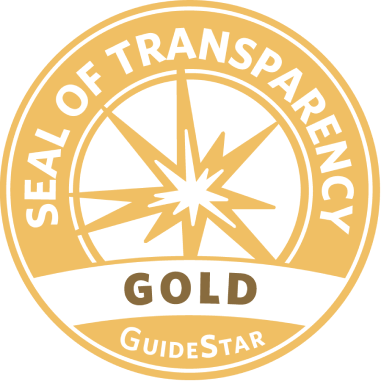In an interconnected world where English serves as the global lingua franca, mastering the language opens doors to education, employment, and advocacy. However, for many individuals in Iran and Afghanistan, learning English is fraught with challenges. Economic barriers, societal constraints, and lack of access to resources often prevent young women in particular from acquiring this vital skill.
At Omid Foundation, we work tirelessly to overcome these obstacles and provide marginalized individuals—especially women—with the opportunity to learn English and transform their lives. This article explores the unique challenges faced in learning English in Iran and Afghanistan and highlights the strategies we employ to address them.
The Importance of English Proficiency
English is more than just a language; it is a tool for empowerment. Proficiency in English allows individuals to access international education, participate in global conversations, and secure better job opportunities. For many in Iran and Afghanistan, learning English is a pathway to independence, self-expression, and advocacy.
However, the socio-political landscapes of both countries have created significant barriers to language education. Young women, in particular, often face compounded challenges due to cultural norms, restricted mobility, and systemic gender discrimination.
Challenges in Learning English
- Economic Barriers
Economic instability is a major obstacle to learning English in Iran and Afghanistan. Many families cannot afford tuition for language classes, textbooks, or digital resources. Economic hardship often forces young individuals to prioritize work over education, leaving little time or resources to pursue language learning.
In Afghanistan, decades of conflict have devastated the education system, making it even more difficult for marginalized communities to access quality English instruction. Similarly, in Iran, inflation and economic sanctions have made educational resources increasingly unaffordable for many families.
- Limited Access to Educational Resources
In both countries, access to qualified English teachers and up-to-date learning materials is often limited, especially in rural areas. Schools and language institutes in these regions frequently lack basic infrastructure, let alone advanced resources like interactive tools or digital platforms.
The digital divide further exacerbates this issue. Many learners do not have access to reliable internet or computers, which are essential for online English courses and self-study programs. This technological gap leaves many aspiring English learners at a disadvantage.
- Cultural and Societal Constraints
Cultural norms in Iran and Afghanistan often restrict women’s access to education. In Afghanistan, for instance, the current political climate has severely curtailed educational opportunities for women and girls. Many are prohibited from attending schools or participating in public life, let alone accessing specialized programs like English classes.
In Iran, while women’s access to education is less restricted, cultural expectations and societal pressures still limit their opportunities. Many young women are expected to prioritize domestic responsibilities over personal development, leaving little time or energy for language learning.
- Lack of Confidence and Support
For many learners, especially young women, the journey of learning English is hindered by a lack of confidence and societal support. Gender-based discrimination and low self-esteem often discourage women from pursuing education or speaking out in class. This can create a cycle of silence, where learners are hesitant to practice their language skills for fear of judgment or criticism.
How Omid Foundation Addresses These Challenges
At Omid Foundation, we believe that every individual deserves the opportunity to learn and grow, regardless of their circumstances. Our English education programs are designed to address the unique challenges faced by young women in Iran and Afghanistan, empowering them to overcome barriers and achieve their goals.
- Providing Affordable and Accessible Education
To address economic barriers, we offer free or heavily subsidized English programs. By removing the financial burden, we ensure that even the most underserved individuals can access quality language education.
We also focus on bringing education to remote and underserved communities. Through online classes, mobile learning platforms, and local partnerships, we make English education accessible to those who cannot attend traditional language institutes.
- Enhancing Resource Availability
To overcome the scarcity of resources, we provide participants with high-quality learning materials, including textbooks, audio-visual aids, and digital tools. Our programs are designed to be flexible, catering to learners with limited access to technology.
For those with internet access, we offer online platforms that include interactive exercises, video lessons, and real-time feedback. These resources allow learners to practice and improve their English skills at their own pace.
- Creating Safe and Inclusive Learning Environments
At Omid Foundation, we understand the importance of creating safe spaces for young women to learn and grow. Our programs are designed to be inclusive and supportive, fostering a sense of belonging and confidence among participants.
In Afghanistan, where restrictions on women’s education are particularly severe, we work with local partners to provide discreet and culturally sensitive learning opportunities. These programs ensure that women can continue their education despite societal constraints.
- Building Confidence and Empowerment
Confidence is key to language learning. Our programs emphasize practical communication skills, encouraging participants to speak, write, and engage with confidence. Through group discussions, role-playing, and mentorship, we help learners build the self-assurance needed to use their English skills in real-life situations.
We also celebrate the achievements of our participants, sharing their success stories to inspire others and demonstrate the transformative power of education.
Stories of Resilience and Success
The impact of our English education programs is best illustrated through the stories of our participants.
One such story is that of Niloofar, a young woman from Iran who joined our program with limited English skills. Despite financial and societal challenges, she persevered and completed her studies. Today, she is pursuing a degree in international relations and dreams of becoming a diplomat.
In Afghanistan, Zahra faced significant barriers to education due to the political climate. Through Omid Foundation’s discreet learning program, she was able to learn English and connect with international organizations. Her newfound language skills have empowered her to advocate for women’s rights in her community.
These stories highlight the resilience of young women and the transformative impact of education.
A Call to Action
The challenges faced by English learners in Iran and Afghanistan are significant, but they are not insurmountable. With the right resources, support, and opportunities, young women can overcome these barriers and achieve their full potential.
At Omid Foundation, we are committed to empowering marginalized individuals through education. By supporting our programs, you can help us provide life-changing opportunities to those who need them most.
Your contributions enable us to expand our reach, develop innovative teaching methods, and create safe spaces for learning. Together, we can build a brighter future for young women in Iran and Afghanistan.
Conclusion
Learning English is more than just acquiring a language; it is a journey of empowerment, self-expression, and connection. For young women in Iran and Afghanistan, overcoming the challenges of language learning can lead to transformative opportunities and brighter futures.
At Omid Foundation, we believe in the power of education to change lives. By addressing the unique challenges faced by our participants, we are breaking down barriers and opening doors to a world of possibilities.
As we continue our mission, we invite you to join us in supporting these courageous young women. Together, we can help them overcome challenges, unlock their potential, and find their voices on the global stage.

